Candidate Guidance: Your Ultimate Tech Job Hunt Toolkit
n a competitive tech job market, standing out is essential. From crafting a compelling resume to acing technical interviews, job seekers must present themselves as well-rounded professionals. This guide offers actionable tips on building an effective LinkedIn profile, negotiating salaries, and preparing for technical interviews to help candidates succeed in landing their dream roles.
10/21/20243 min read


1. Crafting an Impactful Tech Resume
Your resume is your first impression on recruiters, so it needs to be clear, concise, and tailored for each role you apply for. Here’s how to make your resume stand out in the crowded tech job market:
Tips for a Winning Resume:
Use a Clean, Professional Layout: Keep your resume organized with clear sections (e.g., Summary, Skills, Experience, Education). Tools like Canva or Novoresume can help you design professional-looking templates.
Highlight Key Skills at the Top: Recruiters often scan resumes quickly, so showcase critical tech skills such as programming languages, frameworks, and tools right at the beginning.
Tailor Your Experience for Each Role: Use keywords from the job description and focus on achievements, not just responsibilities. Quantify your impact where possible (e.g., “Increased system efficiency by 20% through optimized algorithms”).
Pro Tip:
Use the STAR (Situation, Task, Action, Result) format when describing your work experience to demonstrate problem-solving and critical thinking skills.
2. Building an Outstanding LinkedIn Profile
A strong LinkedIn profile can significantly boost your chances of being noticed by recruiters. Think of LinkedIn as your digital resume, but with more personality and room for storytelling.
Steps to Optimize Your LinkedIn Profile:
Headline: Go beyond just your job title. Include key skills or your area of expertise (e.g., “Software Engineer | AI Enthusiast | Cloud Specialist”).
Summary: Use the summary section to tell your professional story. Highlight your passions, core skills, and what drives you as a tech professional.
Experience and Skills: Ensure your job descriptions are detailed and include specific accomplishments. Add relevant certifications (e.g., AWS, Google Cloud, or Data Science credentials).
Engage with the Community: Post regularly, comment on industry trends, and share your achievements. Active profiles are more likely to catch a recruiter’s eye.
Pro Tip:
Enable the “Open to Work” feature and specify the types of roles you’re seeking. This increases your profile visibility to recruiters.
3. Salary Negotiation: Know Your Worth
Discussing compensation can feel intimidating, but knowing how to negotiate your salary is a crucial skill. Preparation and confidence are key.
Steps to Successful Salary Negotiation:
Do Your Research: Use platforms like Glassdoor, Levels.fyi, or Payscale to understand the market rate for your role and location.
Highlight Your Value: During negotiations, emphasize how your skills and experience align with the company’s goals.
Don’t Reveal Your Current Salary: Instead, focus on your expectations based on market data and job responsibilities.
Be Ready to Walk Away: If an offer doesn’t meet your expectations and there’s no room for negotiation, it’s okay to decline politely.
Pro Tip:
Negotiate benefits beyond salary, such as equity, bonuses, remote work flexibility, or professional development allowances.
4. Preparing for Technical Interviews
Technical interviews are often the most daunting part of the hiring process. However, with the right preparation, you can walk in confidently and leave a lasting impression.
How to Prepare:
Understand the Interview Format: Research whether the interview involves whiteboard coding, take-home assignments, or system design discussions.
Practice Coding Problems: Use platforms like LeetCode, HackerRank, and Codeforces to build your problem-solving skills. Start with easy problems and gradually work up to more difficult ones.
Brush Up on Core Concepts: Make sure you have a solid understanding of algorithms, data structures, and design patterns.
Prepare for Behavioral Questions: Use the STAR method to answer questions about past experiences. Employers want to see how you approach challenges and work in a team.
Pro Tip:
Don’t rush your answers during the interview. Walk the interviewer through your thought process—this shows critical thinking and problem-solving ability.
Final Thoughts
Landing a tech job requires more than just technical skills. By crafting a stellar resume, building an engaging LinkedIn profile, mastering salary negotiations, and preparing thoroughly for interviews, you’ll greatly enhance your chances of success.
At Tcrutr, we’re not just about filling roles—we’re about building careers. Whether you’re a fresh graduate or a seasoned professional, we can help you navigate the complex tech recruitment landscape and find opportunities that match your skills and aspirations.
Ready to take the next step in your tech career? Reach out to us today for personalized guidance and job opportunities!
Address
EG: 3 Abou El Feda, Zamalek,
Cairo 11211, Egypt
SA: Hamad Tower, Al Olaya,
Riyadh 12584, Saudi Arabia
